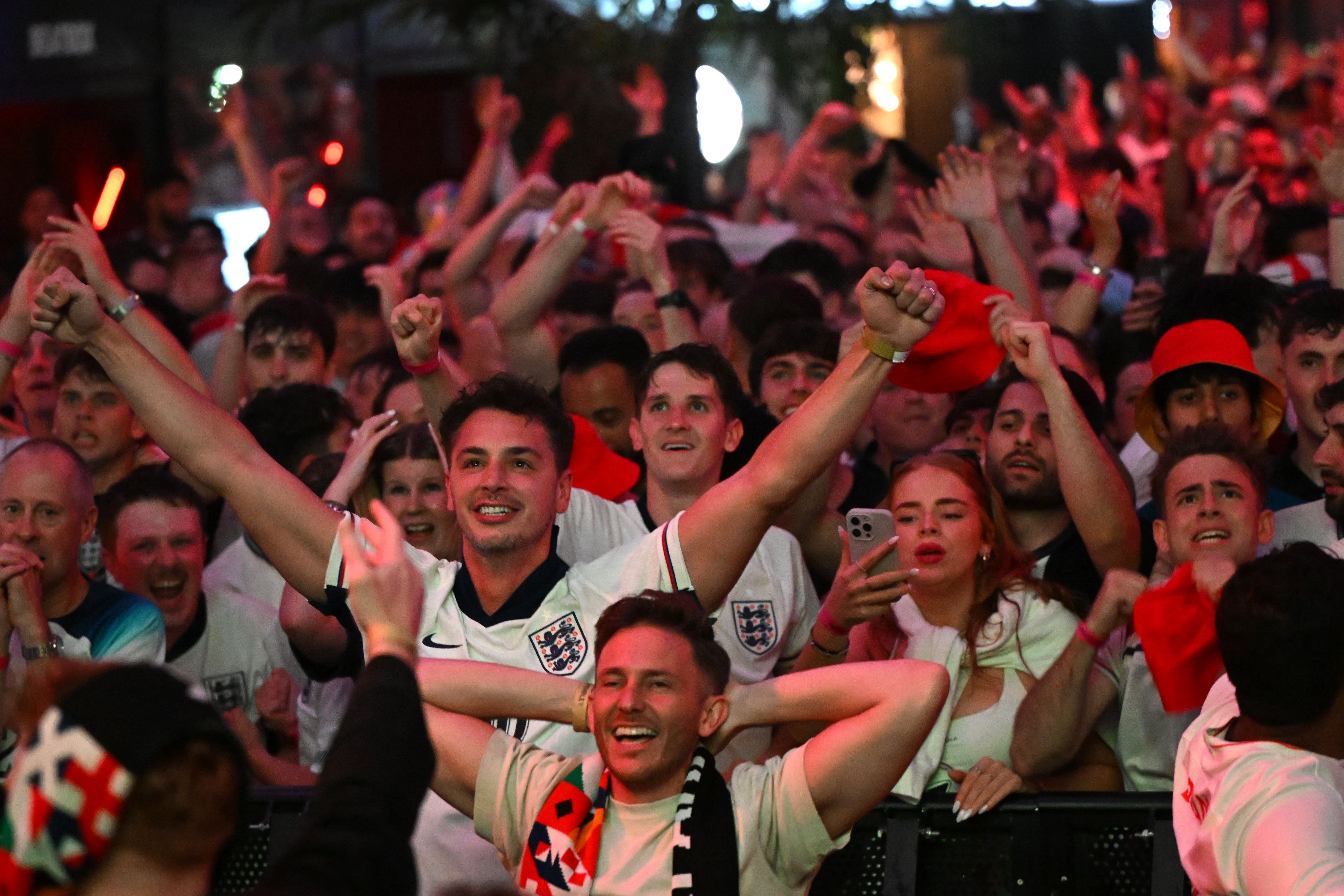Could a football triumph boost our economy? If only it were that simple
Keir Starmer is more likely to benefit from an England Euros victory than our beleaguered high streets, says Chris Blackhurst, who takes a look at what the knock-on effect could be from a win – or a loss


On the first day of the election campaign, Rishi Sunak journeyed to Barry in Wales. He asked a group of workers if they were looking forward to the coming Euro football finals. Not really, they said, seeing as Wales hadn’t actually qualified.
It was a classic gaffe from an accident-prone prime minister. But it showed that football was on his mind.
Despite his insistence that he supports Southampton, Sunak never gave the impression of being a keen follower of the sport – if he was, he would surely have known not to raise the subject of the 2024 Euros in Wales. More proof came later in the campaign when he turned up at a training session for youngsters at Chesham United. Shall we say, his dribbling skills left a lot to be desired – he managed to stumble over a traffic cone – and the resulting picture was not what he or his PR advisers had hoped for.
Still, there is no doubt that the ex-PM and his strategists had factored the football in as possibly adding to a feelgood factor, one of the reasons why he chose to go early with the choice of polling date, along with inflation coming down and the prospect of lower interest rates.
Alas, Sunak was typically unlucky. England’s early performances did not inspire, attracting negative headlines and resigned expectation that another major competition would have been and gone.
Now, look. England are in Sunday’s final. Late in the day but not too late to win, they’re playing with a style and swagger that was lacking previously. Not only that, but they also managed to beat Switzerland on the dreaded penalties. In Germany.
To rub it in, Sunak’s nemesis is a genuine lover of the game. Sir Keir Starmer likes to play five-a-side with the same group of mates and is a life-long Gooner, going to the Emirates to watch Arsenal whenever he can. It is Starmer, not Sunak, who stands to benefit from the positivity sweeping England. If the team should go and triumph over Spain, there will be an outbreak of euphoria the like of which has not been seen since 1966.
But does a moment of collective happiness, evidenced by cheering and smiles and mass singing about football “coming home” and doubtless a victory parade, translate into profits?
Supermarkets can expect to do a roaring trade. The forecast is for sunshine, and barbecue and convenience food will fly off the shelves. Tesco alone is aiming to sell a million pizzas, 180,000 packs of burgers and 800,000 packs of sausages, washed down by 4 million boxes of beer and cider, 1.2 million low-alcohol beer cans and 2.5 million bottles of wine.
The British Beer and Pub Association is predicting pubs will sell an extra 10 million pints, worth nearly £50m in additional takings. That’s during the build-up, the game itself and the immediate aftermath (pubs are going to be allowed to extend their hours).
But is there any correlation between lifting the trophy and the economy going forward? The last occasion England won a major competition was of course in 1966. Then, the country’s economy overperformed – though output was already on an upward path. It was hard to cite the feelgood factor as the reason. Soon afterwards, output dipped, so signs of a lift from winning were scant.
In 1990, when England reached the semi-finals of the World Cup in Italy (losing to Germany on penalties) the economy did again surge ahead, only to slip into recession later in the year.
It would be nice to think that the national bugbear of low productivity will be solved by an England win. If only it was so simple.
The last time the nation was in a buoyant mood thanks to sporting success was the London Olympics in 2012. There was no commensurate rise in consumer spending, but the UK certainly drew applause internationally as a “cool” place to live, study and invest. In particular, the opening ceremony was credited with raising the country in the global standings, highlighting as it did, Britain’s track record of invention and creativity, as well as its sense of humour. Online searches of housing in London from abroad and calls to estate agents are said to have shot up after that spectacular display.
These finals, as Sunak was made to realise, have concerned only England and Scotland, and the latter were knocked out in the early stages. It’s hard to imagine the other home nations feeling buoyed by an England triumph – quite the reverse in fact.
The more guaranteed boost to the economy will come when interest rates are reduced. Nevertheless, there is no denying a win would raise England’s spirit, and there is no harm in that.
A victory would be a gift for Starmer. In 1966, Labour also enjoyed a landslide election. Soon afterwards, Bobby Moore lifted the Jules Rimet trophy at Wembley, causing Harold Wilson, the new prime minister, to quip that “England only win the World Cup when Labour are in power.”
Starmer could be forgiven for saying something similar. Poor Sunak, forced to look on, booted out of office and never given the chance to say it was the Tories wot won it
Join our commenting forum
Join thought-provoking conversations, follow other Independent readers and see their replies
Comments

Bookmark popover
Removed from bookmarks